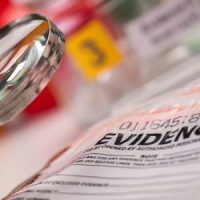Can Blood Samples Be Reanalyzed?

In Florida, driving under the influence of alcohol or drugs is a serious offense, and the consequences can be severe. Blood samples are sometimes used to determine a driver’s blood alcohol concentration (BAC) or the presence of drugs in their system. But what happens if you believe the results of your blood test are inaccurate or flawed? Talk to Clearwater criminal lawyer about the possibility of challenging charges.
When Can Blood Test Results Be Reanalyzed?
When a driver is suspected of driving under the influence, law enforcement may administer a variety of tests. These can include field sobriety tests, breath tests, and blood tests. While breath tests are more commonly used, blood tests are often employed in situations where a more accurate measurement of BAC is needed.
Blood tests are typically used when a breathalyzer indicates a high BAC, an officer suspects drug use, or if a driver is unconscious or unable to perform a breath test. Results of blood tests are considered highly reliable and can be key forms of evidence in a prosecutor’s case. That said, these results are not infallible.
There are several reasons why a blood test result might be reanalyzed.
- Sample contamination. Blood samples must be collected, stored, and analyzed following strict protocols to prevent contamination. If there is any indication that the sample was contaminated, either during collection or storage, the results may be called into question. Reanalysis can be requested to determine if the original results were tainted by improper procedures.
- Improper handling. Because samples are highly sensitive, they need to be handled with care. Any deviation from proper handling procedures, such as storing the sample at an incorrect temperature, delayed analysis, or improper labeling, can compromise the accuracy of the results.
- Analysis errors. Laboratory mistakes, such as incorrect calibration of equipment or human error during analysis, can lead to inaccurate results. A reanalysis by an independent laboratory can verify or refute the initial findings.
- Preservation of the sample. Typically blood samples are preserved for a certain period after the initial analysis. During this time, a defense attorney can request that the sample be retested by an independent lab to check for accuracy. This retesting can be crucial if the defense believes that the original test results were flawed.
If a reanalysis of the blood sample reveals inconsistencies or errors, the results can be challenged in court. A skilled Clearwater criminal lawyer can scrutinize the entire process of how the blood sample was collected, stored, and analyzed. They can also question the credibility of the original laboratory results and present evidence from the reanalysis to argue that the blood test results should not be used as evidence in the case.
Are You Ready to Talk to an Attorney?
Could a lawyer help you get a sample reconsidered? If you believe that your blood test results were inaccurate, contaminated, or mishandled, it’s important that you take steps to protect your rights. Connect with the seasoned legal team at King Law Group. Schedule your confidential consultation today.

